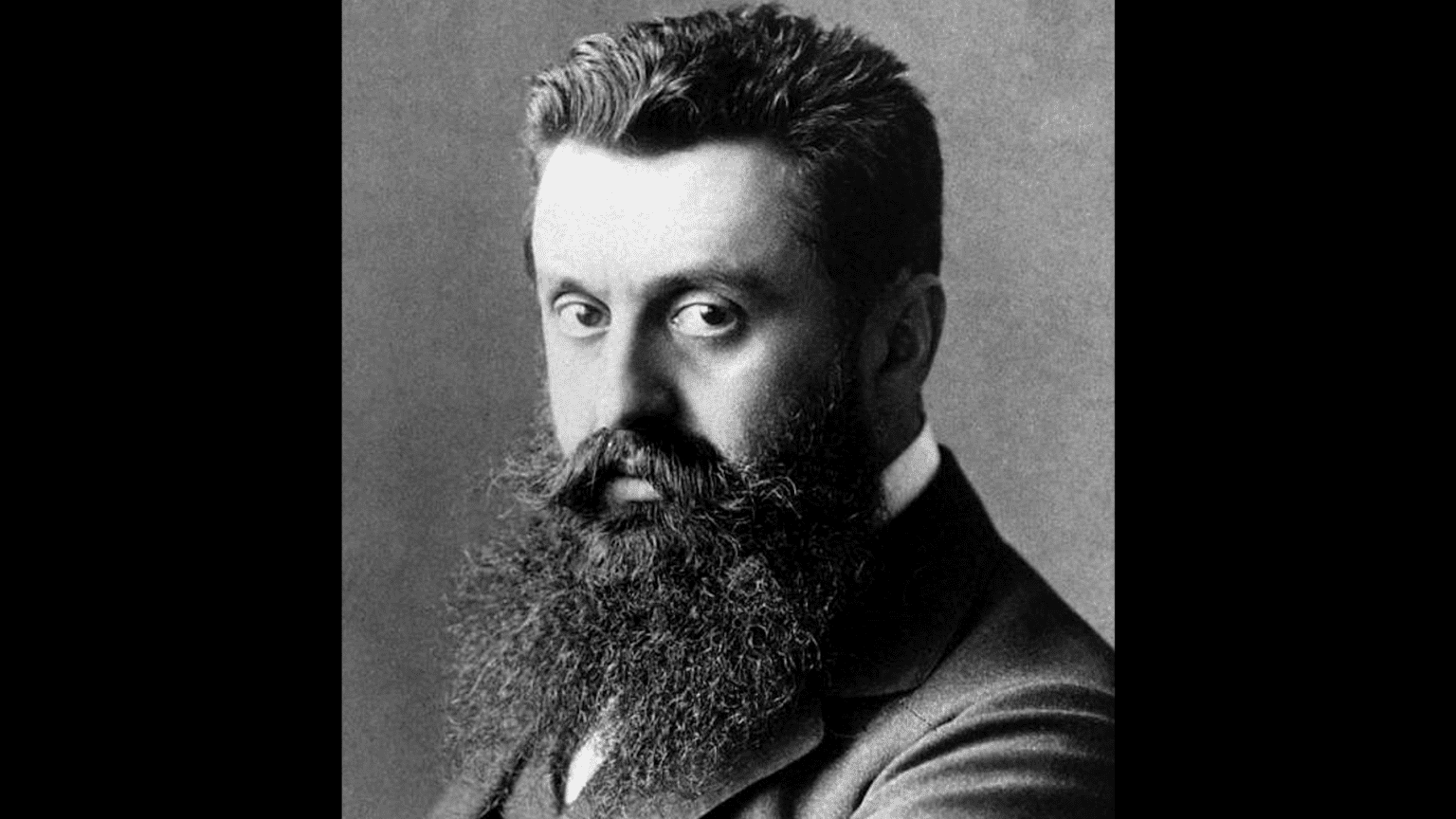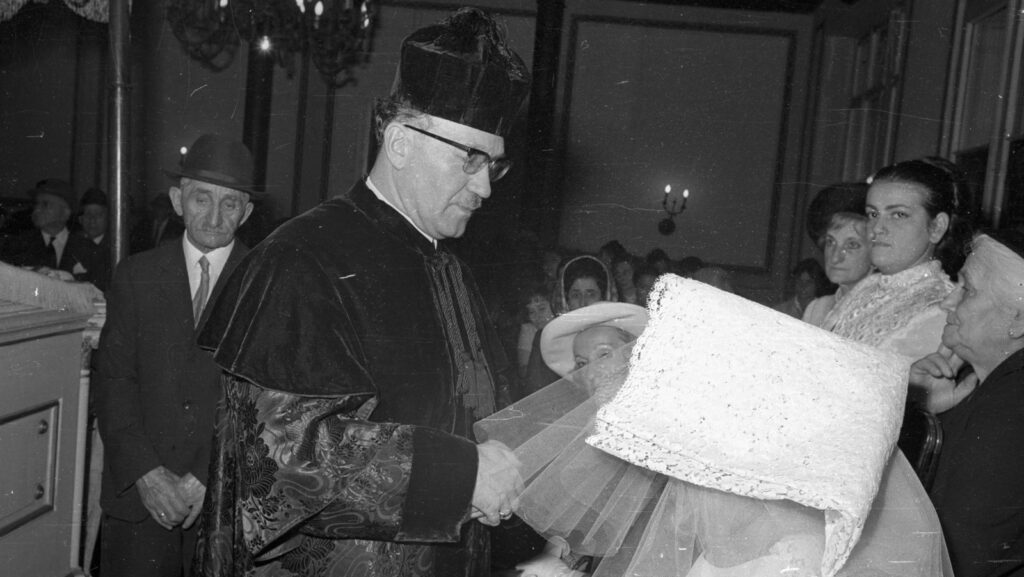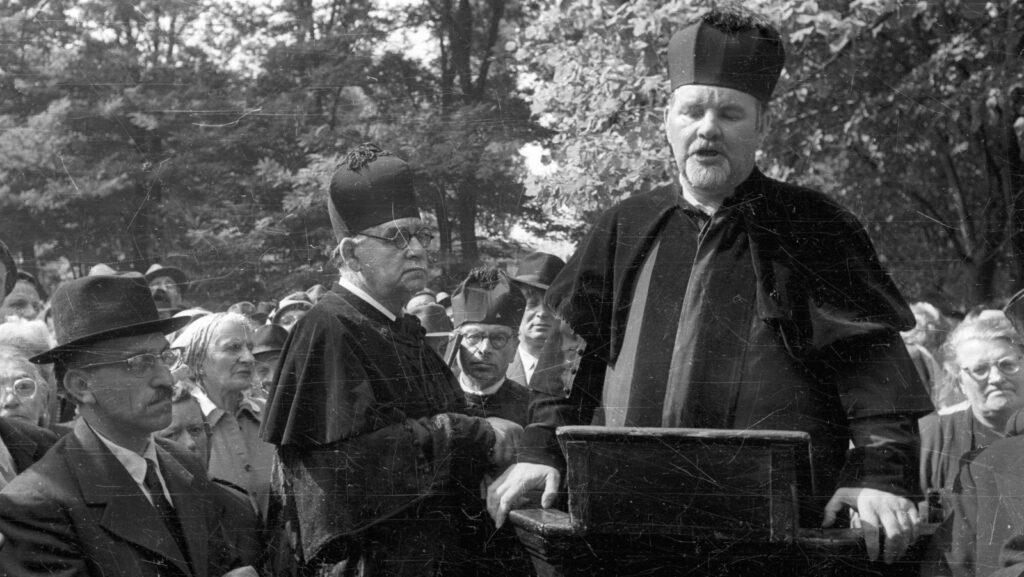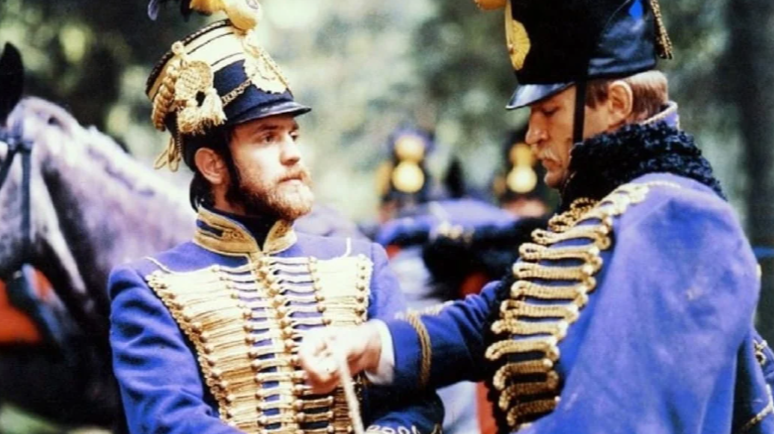During the height of the tensions between Revisionist (right-wing) and Socialist Zionism in Hungary, the now-forgotten revisionist Zionist author Pál Gellért wrote the following lines in 1937: ‘From the point of view of the Jewish people it is just the same whether our sons are killed or converted to Bolshevism’.[1] The rhetoric might have been radical, but it was typical of the small Zionist press, fractionated by internal conflicts. During this period, both sides tried to quote the writings of the Budapest-born founder of political Zionism, Theodore Herzl, and both sides seemed to find their own version of Herzl that fit their arguments.
On the one hand, the left-wing Zionists could cite Herzl’s opposition to religion, the revolutionary nature of Zionism and its break with certain Jewish traditions (be it the religious ban of making aliyah [moving to Israel]en masse or the assimilationist-liberal tradition). On the other hand, Herzl’s diaries abound with snide comments on Socialism and indeed it was difficult to bring into harmony the anti-nationalist attitude of the revolutionary workers’ movement with a profoundly nationalist movement, such as Zionism.
Herzl could not shed the characteristics of his age and social status. A rather well-to-do journalist who was born in Budapest and spent much of his adult life in Paris and Vienna, a correspondent for some of the largest newspapers at the time, organizing a world revolution in the shadows was not to his liking. Herzl initially wanted to approach the great Jewish banker dynasty, the Rothschilds with his plan for a Jewish state and constantly wrote about the need for capital in his diaries. He believed that capital would build the state of Israel and today the kibbutz movement is widely seen more as an “alibi” for a movement being socialist in its rhetoric, but nationalist in its outlook rather than the actual foundation of Israel.[2]
Herzl wrote that he was ‘opposed’ to ‘petty solutions’ to the Jewish question, such as ‘the conversion of the Jews to socialism’
Herzl wrote that he was ‘opposed’ to ‘petty solutions’ to the Jewish question, such as ‘the conversion of the Jews to socialism’.[3] When one of his acquaintances suggested that Jews join the Socialist movement, Herzl diverged: ‘In my opinion, that would be as nonsensical as Socialism itself.’[4] In 1896, he promised the Grand Duke of Baden that support for Zionism will ‘have two results […] our weakening of the revolutionary parties and our breaking of the international financial power’.[5] He also wanted to approach the German Kaiser Wilhelm II with a similar proposition: ‘If Jews emigrate, […] you thereby […], forestall a revolution which might be hard to contain, weaken socialism which the oppressed Jews must flock to because they are cast out by other parties, and gain time for the solution of social problems.’[6] Again, in his diaries the explained: ‘The governments will give us their friendly assistance because we relieve them of the danger of a revolution which would start with the Jew – and stop who knows where!’[7]
Herzl was also highly critical of democracy. ‘Democracy is political nonsense which can only be decided upon by a mob in the excitement of a revolution‘, he wrote briefly in his diaries in 1895,[8] but later explained further: ‘I am against democracy because it is extreme in its approval and disapproval, tends to idle parliamentary babble, and produces that base class of men, the professional politicians. Nor are the present-day nations really suited to the democratic form of government; and I believe they will become less and less suited to it. For democracy presupposes a very simple morality, and our morality is becoming ever more complex with the advance of commerce and civilization.’[9]
In one entry under the title ‘Faults of Democracy’, Herzl wrote: ‘One gets only the disadvantages of its insistence on publicity. This publicity brings about the loss of that respect which is necessary for government. All the world finds out that the men who govern us are merely human beings too — and in so many cases laughable, narrow persons.’ Here he wrote of ‘the existing order, one that is to be preserved […]’.[10]Herzl wanted a Jewish state based in Switzerland, but with monarchic institutions in order to guarantee political stability.[11]
Herzl was pessimistic about the direction of the European politics is taking and envisioned troubles ahead for his people. He could not entirely foresee the Holocaust, but in 1903 he told the Hungarian editor – and liberal anti-Zionist Jew – Miksa Szabolcsi upfront that ‘soon in Hungary you will have antisemitism so strong that [antisemitism in other lands] will fade in comparison’.[12] He also had little trust of the contemporary leaders of French Jewry who—according to him—saw the state and church discredited in the Dreyfus affair. ‘They seek protection from the Socialists and the destroyers of the present civil order […] Truly they are not Jews anymore. To be sure, they are no Frenchmen either. They will probably become the leaders of European anarchism.’[13]
Herzl preferred the ruling elite in its place, even if they were antisemitic to some extent. This was made obvious with his reaction to the electoral success of the nationalist Karl Lueger in Vienna in 1895. When the prime minister of Cisleithania, Kasimir Felix Badeni opposed confirming the politician who famously dubbed Budapest “Judapest” to his office, Herzl met with him and told him that ‘I believe Lueger’s election as mayor must be validated. If you fail to do it the first time, you can never confirm him again, and if you fail to confirm him the third time, the Dragoons will ride.’[14]
Herzl also had no qualms over approaching the Ottoman Sultan Abdul Hamid II, as Palestine was then part of the failing Ottoman Empire and Herzl wanted to gain the Sultan’s consent to Jewish development in the region. At the time, the Ottoman Empire was infamous in Europe over the massacres of the Armenians: in fact, in the same year the Sultan had Harper’s Weekly banned for its extensive coverage of the mass killings.
In June 1896, Herzl travelled to Constantinople to meet the Sultan, but was unsuccessful in garnering an audience. However, he was told by the Sultan’s men that ‘he could and would receive me as a friend – after I had rendered him a service. The service he asks of me is this: For one thing, l am to influence the European press (in London, Paris, Berlin and Vienna) to handle the Armenian question in a spirit more friendly to the Turks: for another, l am to induce the Armenian leaders directly to submit to him, whereupon he will make all sorts of concessions to them […] I immediately […] was ready à me mettre en campagne [to start my campaign].’[15]
Barely a month later Herzl met with Avetis Nazarbekian, the head of the Armenian Social Democrat Hunchakian Party. ‘I promised I would try to get the Sultan to stop the massacres and new arrests, as a token of his good will. But he would hardly release the prisoners in advance, as Nazarbek desired. I explained to him in vain that, after all, the revolutionaries could watch the course of the peace negotiations without disarming, with their guns at their feet.’[16] These tactics drew criticism even from Herzl’s closest followers and soon he had to give this way of gaining the Sultan’s favours.[17]
Two years later, Herzl finally met Kaiser Wilhelm II, and he tried to get the German Emperor to intervene on the Zionists’ behalf with the Sultan. Here Herzl again used the rivalry between Socialism and Zionism to his benefit: ‘I explained that we were taking the Jews away from the revolutionary parties.’[18]
He was no enemy of progress, but until the foundation of the Jewish state, he did not want to see Jews split between Socialism and Zionism
But Kaiser Wilhelm was still a classical liberal compared to the Tsarist Russian Minister of the Interior, Vyacheslav von Plevhe, with whom he met in August 1903 in St. Petersburg. Herzl claimed here that he was no enemy of progress, but until the foundation of the Jewish state (which never happened in his lifetime), he did not want to see Jews split between Socialism and Zionism: ‘In Palestine […] our land, such a party would vitalise our political life – and then I shall determine my own attitude toward it. You do me an injustice if you say that I am opposed to progressive social ideas. But, now, in our present condition, it is too soon to deal with such matters. They are extraneous. Zionism demands complete, not partial involvement.’[19]
While Socialist historiography tried to depict Herzl as a proto-fascist and a chauvinist, who gleefully betrayed the cause of Social Democracy and collaborated with antisemites,[20] the above quotes allow for a deeper understanding of Herzl’s worldview and motivations. He was interested in political stability, gradual progress and the deliverance of the Jewish people from the dual perils of antisemitism and assimilation, which he saw as equally dangerous. He did not fully reject the idea of a Socialist party in Israel, but until the creation of the Jewish state, he wanted to hear of no such thing. In the short run, he was mistaken, as finally the state of Israel was proclaimed by the Socialist Zionist David Ben-Gurion. Today, however, Israel is a high-tech, nationalistic and religious country – far from the ideals of the kibbutznikim, and much closer to what Herzl envisioned in his diaries.
[1] Gellért Pál, ’Harc a bolsevizmus ellen!’, Bné Betár, Feb. 1937, 35–36.
[2] Zeev Sternhell, ’The founding myths of Israel: nationalism, socialism, and the making of the Jewish state’, Princeton, N.J.: Princeton University Press, 1998. 42.
[3] Raphael Patai (ed.), The Complete Diaries of Theodor Herzl, (Herzl Press:New York), 1960, vol. 1. 116.
[4] Patai (ed.), The Complete Diaries, vol. 1. 214.
[5] Patai (ed.), The Complete Diaries, vol. 1. 344.
[6] Patai (ed.), The Complete Diaries, vol. 1. 62.
[7] Patai (ed.), The Complete Diaries, vol. 1. 183.
[8] Patai (ed.), The Complete Diaries, vol. 1. 126.
[9] Patai (ed.), The Complete Diaries, vol. 1. 169.
[10] Patai (ed.), The Complete Diaries, vol. 1. 124.
[11] N. M. Gelber: Herzl’s Manual for Zionism. The New Jersey Jewish News, 19 Aug. 1966. 12.
[12] Reprinted among other places in Egyenlőség, 1924. július 26.
[13] Patai (ed.), The Complete Diaries, vol. 2. 672-673.
[14] Patai (ed.), ’The Complete Diaries’, vol. 1. 260-261.
[15] Patai (ed.), The Complete Diaries, vol. 1. 387.
[16] Patai (ed.), The Complete Diaries, vol. 1. 417–418.
[17] Rachel Elboim-Dror: How Herzl Sold Out the Armenians. Haaretz, 1 May 2015.
[18] Patai (ed.), The Complete Diaries, vol. 3. 729.
[19] Amos Elon, ’Herzl’, New York, Holt, Rinehart and Winston, 1975, 381–382.
[20] György Makkai, ‘Izrael állam és a cionizmus’, Budapest, Kossuth, 1973, 54ff.








